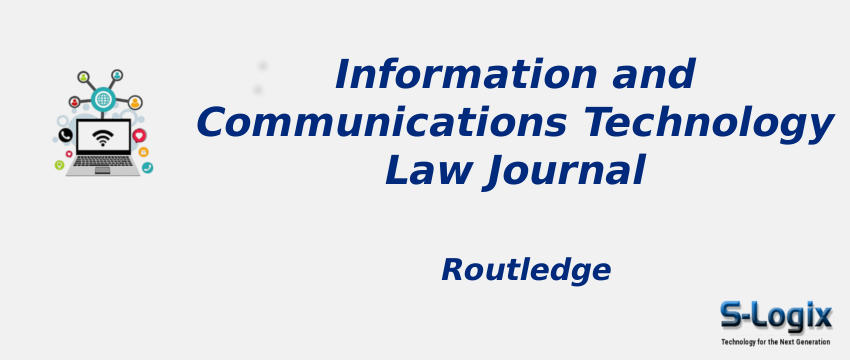The last decade has seen the introduction of computers and information technology at many levels of human transaction. Information technology (IT) is now used for data collation, in daily commercial transactions like transfer of funds, conclusion of contract, and complex diagnostic purposes in fields such as law, medicine and transport.
Journal Home: Journal Homepage
Editor-in-Chief: Indira Mahalingam Carr
scope: The use of IT has expanded rapidly with the introduction of multimedia and the Internet. Any new technology inevitably raises a number of questions ranging from the legal to the ethical and the social.
Print ISSN: 13600834
Electronic ISSN:
Abstracting and Indexing: Scopus
Imapct Factor :
Subject Area and Category: Computer Science Computer Science Applications Social Sciences Communication Law
Publication Frequency:
H Index: 18
Q1: Law
Q2:
Q3:
Q4:
Cite Score: 3.4
SNIP: 3.219
Journal Rank(SJR): 0.386
Latest Articles: Latest Articles in Information and Communications Technology Law
Guidelines for Authors: Information and Communications Technology Law Author Guidelines
Paper Submissions: Paper Submissions in Information and Communications Technology Law
Publisher: Routledge
Country: United Kingdom
